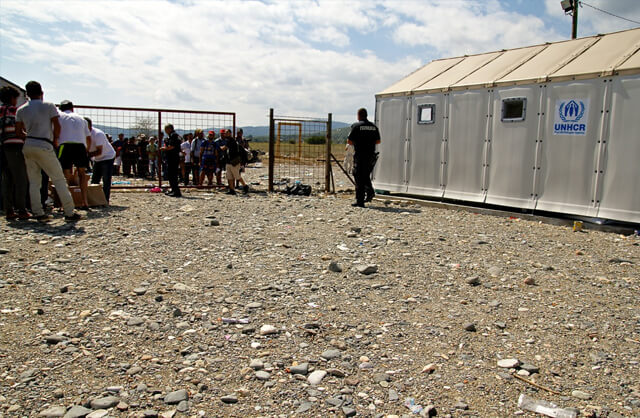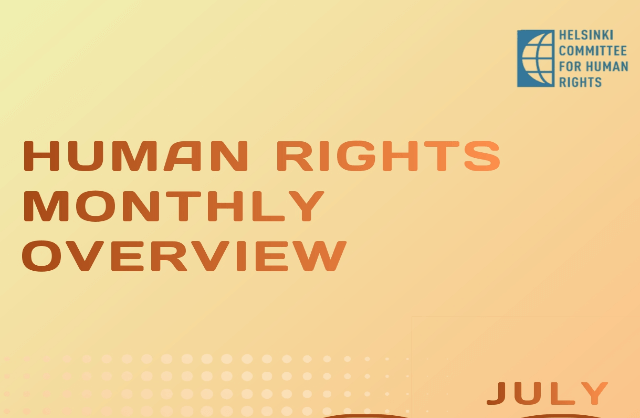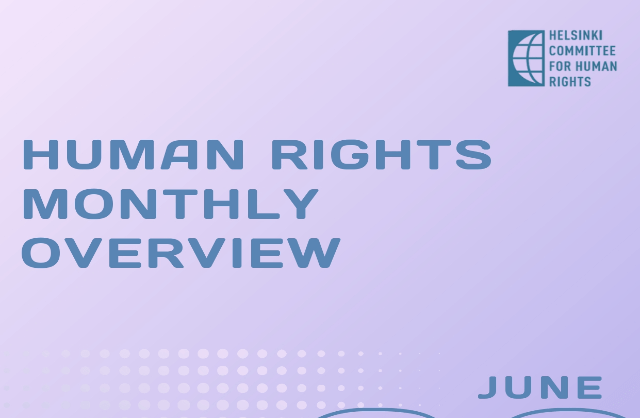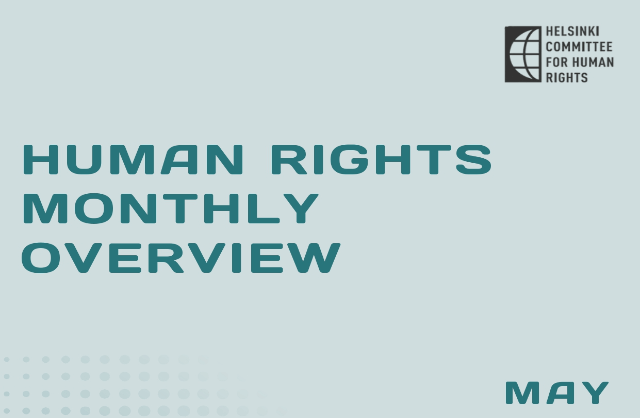The situation at the border crossings Gevgelija and Kumanovo
November 2, 2015

The weekly report on the situation at the border crossings Gevgelija and Kumanovo includes the following topics: Available facilities and organizations working on field and Institutional treatment.
Gevgelija
Available facilities and organizations working on field
The Gevgelija camp has two entrances, the staff entrance where staff vehicles enter and the one used by the refugees. There are three humanitarian aid points of the Red Cross, a point of the non-governmental organization NUN which hands meals to the refugees, then the Legis humanitarian aid point, as well as five UNCHR facilities, the first of which is used to store hygiene products, two as food storage and one for water and blankets. Furthermore, there are dumpster on field for the police officers and members of the Rapid Deployment Unit (RDP), as well as toilets. Although the hygiene level is good, the people in charge of maintenance complain of a lack of disinfectants. There are two big tents set up on field, equipped with benches and designed to provide a place for rest for the refugees who are passing by and waiting for a train, i.e. some rest while they are waiting to be registered. There are also two UNICEF tents designed for the families with children to get some rest. Humanity First is also present on field, and its representatives hand out coffee and tea, as is the La Strada (Open Gate) organization. UNCHR has also set up additional 6 tents for the refugees to have a place to rest. Four mobile offices of IOM (the International Organization for Migration) are located between the two entrances and used by the police officers to register the refugees, aided by representatives of the Young Lawyers Association. It is worrying that there is only one ambulance vehicle present on field, with two medical professionals and a driver. The camp manager is Zoran Lazarovski.
Institutional treatment
Irregularities have been also observed in the actions of the employees at JP Makedonski zheleznici (PE Macedonian Railroads) i.e. the ticket collectors, as well as in the actions of some of the police officers who are deployed on the border crossings.
Whenever there is a higher influx of refugees which leads to people waiting in lines, the police attempts to control them by exercising force or threats. In one case, the police lifted their batons in the air in order to intimidate the people and started hitting the refugees on their bags in order to force them to listen to orders. This caused visible distress and fear among the people, which only worsened the situation and led to panic. When dealing with refugees, the police officers often resort to aggressiveness (slapping people on the face and swearing at them). Although attempts have been made, the process of identifying the police officers who use excessive force on the refugees is difficult, as the refugees are in a rush to leave the incident scene, fearing to stay or testify about such events.
Most of the problems are observed in the actions of the ticket collectors of MR when selling tickets. They charge the tickets at a price of 25 EUR, and oftentimes the ticket collectors are trying to cheat when paying back change or converting between various currencies. Problems also occur when the refugees pay in foreign currencies, since the ticket collectors take advantage of those situations to gain illegal profit.
Kumanovo
Available facilities and organizations working on field
15 UNCHR barracks are placed in the refugee camp Tabanovce. There is also a point for distribution of clothes and food, another one for accommodation of families, as well as a tent for children set up by the Legis NGO. The Red Cross has set up two humanitarian aid points, and there are also two toilets. Apart from these two organizations, representatives of PREDA PLUS (a non-governmental organization in charge of distribution of food and clothes packages) can be spotted on field, as well as representatives of ADRA-Macedonia (Adventist Development and Relief Agency International – an independent humanitarian organization of the Seventh-day Adventist Church for delivering relief and development assistance to individuals in distress), the humanitarian organization EUROHUMAN, as well as the Education and Culture Association, LEXO-Kumanovo. The listed organizations manage to satisfy most of the needs for food, water, clothes and personal hygiene products, as well as provide medical aid. The hygiene on field is relatively good and is regularly maintained. The manager of the Tabanovce camp is Goran Stojkovski.
From the observers’ findings, the camp needs an increased number of barracks as a place for rest and overnight-stay of the refugees who need a prolonged stay there. In addition, it also lacks better marking, lighting, as well as repairs on the road leading to the border crossing with Serbia along with better marking of the local areas so that the refugees are informed about their whereabouts at any given point. Considering the change in the weather, there is urgent need of an increased quantity of winter clothes, footwear and protective raincoats.
Institutional treatment
Police officers, uniformed or in civilian attire are rarely spotted on the premises of the camp. They sporadically transit through the camp and hence whenever an intervention is necessary, for example in the cases when there is a clash between the groups of refugees, they are not always present to take action. The border police is stationed at its checkpoints, which are further away from the camp ground.
Since tickets are purchased upon getting on the train in Gevgelija, the employees of Macedonian Railroads, i.e. the ticket collectors, virtually do not leave the trains. The volunteers on field are the ones who are working on getting the refugees on and off the trains, so the ticket collectors’ treatment has not been observed as inappropriate.
This report is made possible by the generous support of the Foundation Open Society Institute (FOSI) within the project „Improvement of the rights protection for migrants and asylum seekers in the Republic of Macedonia“. The contents are the responsibility of the Helsinki Committee for Human rights of the Republic of Macedonia and do not necessarily reflect the views of FOSI.


